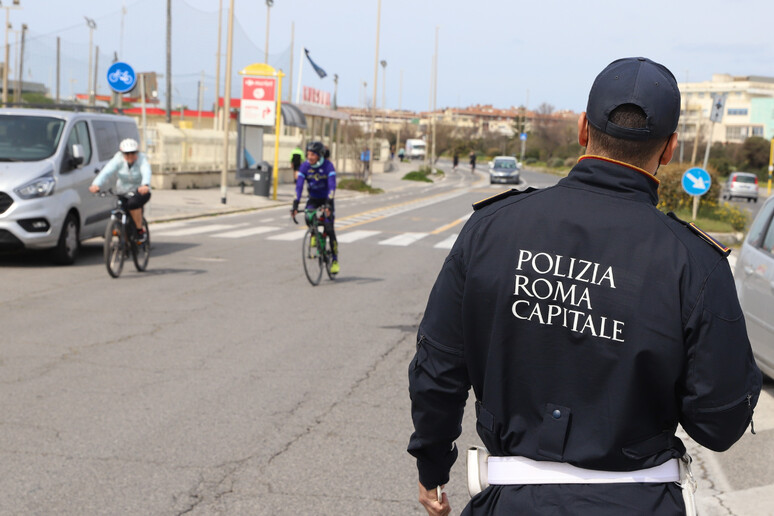Italy is spending Easter in lockdown
after the government made the whole nation a COVID-19 'red zone'
from Saturday to Easter Monday in order to prevent social
interaction fuelling contagion.
This means shops selling non-essential items must close, bars
and restaurants can only do takeaways and home deliveries and
people need a good reason to be outside the home.
It will be possible, however, for up to two adults and their
children under 14 to visit the home of another person, with no
more than one visit a day, and to attend religious services.
The interior ministry on Thursday told Italy's prefects to
intensify checks on the respect of COVID-19 restrictions over
Easter.
Police have been told to focus checks on people who are
travelling and to pay special attention areas likely to attract
groups of people, such as parks and beaches.
Defence Undersecretary Giorgio Mulè said Friday that a
much-needed batch of 1.3 million doses of the AstraZeneca
COVID-19 vaccine had arrived at the Pratica di Mare military
airport near Rome.
Italy's vaccination rollout has sped up significantly in the
last two weeks. But a lack of vaccine doses had threatened to
hold back the progress.
Lazio, the region Rome belongs to, said Thursday that it would
have to suspend vaccinations within 24 hours if it did not get
new supplies.
The new AstraZeneca jabs are being distributed throughout the
nation in the afternoon, with around 200,000 doses going to
Lazio.
"We are working flat out, the defence ministry, the civil
protection department and the regional health authorities, to
get up to vaccinating 500,000 people a day," Mulè told Radio24.
Regional Affairs Minister Mariastella Gelmini said Friday that
Italy set a new record of over 300,000 COVID-19 vaccinations on
Thursday.
"The new vaccine plan is working and the regions are following
the government's instructions," Gelmini said via Twitter.
"They have started to move fast. "Yesterday we crossed the
threshold of 300,000 inoculations in a day".
Italy has given out over 10.5 million jabs so far and more than
3.3 million people are fully vaccinated, having had both heir
first and second doses.
ALL RIGHTS RESERVED © Copyright ANSA











